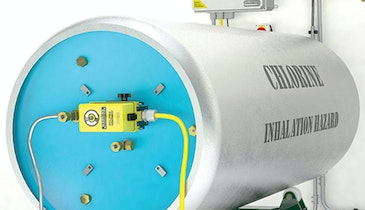Interested in Disinfection?
Get Disinfection articles, news and videos right in your inbox! Sign up now.
Disinfection + Get AlertsThe Association of Metropolitan Water Agencies recently voiced its support of an agreement between the railroads and their unions that prevented any interference of the shipment and delivery of chlorine and other essential water treatment chemicals. The agreement was announced by the White House.
“This agreement has averted a major public health crisis,” says AMWA CEO Tom Dobbins. “If freight rail service had halted, water systems from coast to coast would have been at risk of running out of essential disinfectant chemicals, potentially leading to boil water notices for millions of Americans.”
The Safe Drinking Water Act requires water utilities to disinfect their water with chlorine, and many large drinking water systems rely on chlorine provided by rail for this purpose. While these systems generally maintain several weeks of reserves on site to protect against unexpected supply chain disruptions, for safety reasons, the volume of these reserves are limited. Water systems are, therefore, not equipped to withstand a long-term halt in rail service.
AMWA had recently joined a coalition of water sector groups urging lawmakers to take action to avert the work stoppage and the public health impacts that would result.
Municipal water is the most highly regulated drinking water accessible to the public, according to AMWA, and no water at its source is appropriate for consumption. It is through treatment that any water available to the public is made safe, and chlorine is a key disinfectant in converting source water to drinking water.
“With the threat of a work stoppage avoided and rail service maintained, municipal water utilities will continue to provide the highest quality of safe drinking water to the public,” Dobbins says.






